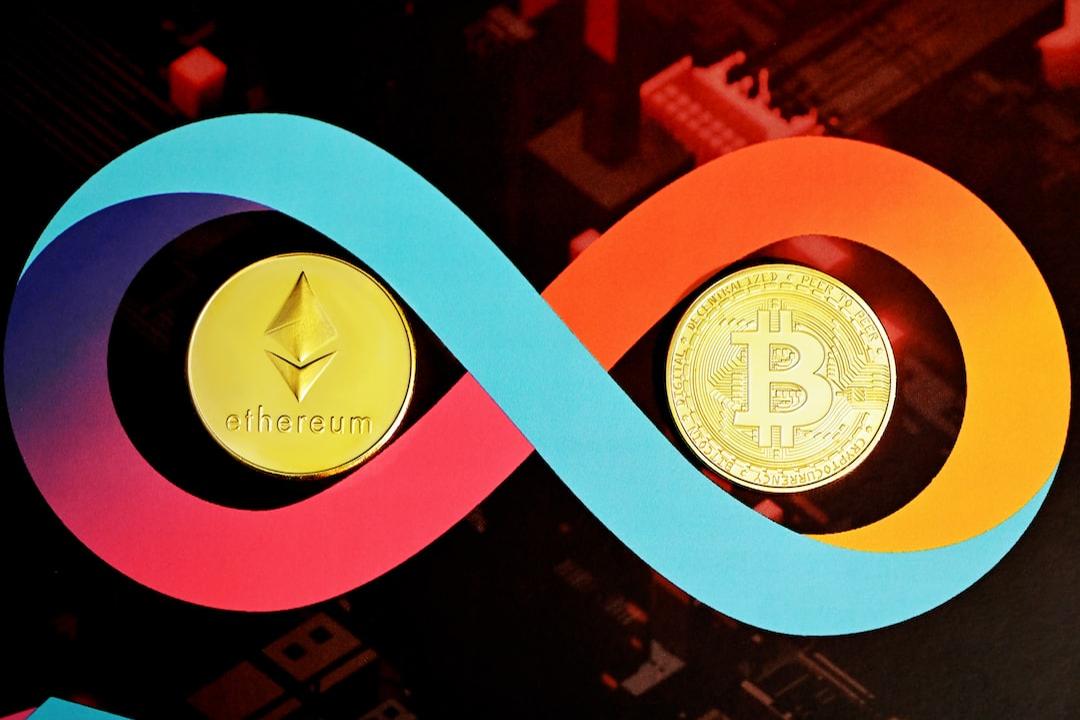Route Transformation
Their establishment enables them to operate on Wall Street and engage in activities that I believe will be very beneficial to us—activities that EF may not directly undertake. Their BD (Business Development) team is better able to directly engage with US users, as well as with traditional finance or large corporations in the US. I think this is a great step forward in promoting this sector.
Bruce:
I just heard that EF doesn’t have a marketing team, is that right?
Wang Xiaowei:
Yes, we only do communication. As Josh Stark mentioned, Ethereum doesn’t have a BD team, Ethereum has one hundred BD teams. Other applications, whether Layer 2 or some Dapps, have their BD teams, and they are essentially our BD team as well. We don’t treat Ethereum as our own brand. For example, on Twitter, we recently had some account changes. Since the beginning of this year, we now have one Ethereum account and one Ethereum Foundation account. I think separating them is a good move because when we used to post something with the Ethereum account, it seemed like it was the Foundation’s message, which was quite limiting. Now, we can use this account for BD-like activities, help the community understand what major events are happening, and I think this separation is good—both accounts are now being used to their advantage.
Bruce:
This also makes our work much easier. The Ethereum official account is a good source for translating and introducing content, providing the latest updates, and helping promote better within the community.
Wang Xiaowei:
Earlier, we also talked about ESP, which plays a very important role within EF and has always been a driving force behind the development of the entire ecosystem. With this new structure, will there be any changes to EF’s budget allocation, especially in areas that ESP will focus on?
Wang Xiaowei:
I mentioned earlier that we have Eco Dev and Development teams. The developers and research team leads in these departments are already capable of managing larger grants. ESP and other Eco Dev teams are separate entities. There are a few major areas of focus. One is AGR, which is not directly within ESP but has some connection to it. This is an academic research area, with a grant offered once per year. This year’s application should be closed, and it is currently under audit.
In other areas, I think ESP essentially serves as the front-facing entity for receiving inbound requests. They have quite a wide range of choices in terms of what to support and are not strictly limited to setting a specific budget for events. Ethereum Foundation’s support sometimes doesn’t necessarily come in the form of grants or money but rather through a shout-out (promotion) from the Foundation.
When the Foundation decides whether to support an event with a grant, it’s not always about how many direct users the event will bring in, but rather about which grants can have the greatest impact, which activities or projects the Foundation can support that are useful and contribute to public goods.
Bruce:
To summarize, these are activities or projects where the Foundation may be the only organization willing to support them, and the content itself is necessary.
Bruce:
I’ve also noticed that EF is involving more external organizations in decision-making, such as the EF Silviculture Society? What’s the role of this organization?
Wang Xiaowei:
They are somewhat like a board of advisors. We selected advisors from different fields who have a strong sense of public interest. We’re very grateful for their involvement. I think they mainly represent the spirit of Cypherpunk, as well as safety and privacy concerns.
If we consider Ethereum as a business, then having business advisors makes it easier for us to listen to a wide range of opinions. How do we better listen to the community’s voice? That’s the purpose of forming this advisory board.
Additionally, we’ve recently been listening to the opinions of DeFi experts. EF has also been actively engaging in Twitter Spaces with successful projects in areas like Layer 2 Interoperability or Dapps. External project leaders also come in to give seminars to EF’s internal teams. Through these interactions, we gather expert opinions and community feedback.
Bruce:
There have been suggestions that Ethereum Foundation should focus on generating revenue through DeFi, rather than continuing to sell coins publicly. What’s your view on EF’s funding model? What potential input channels can guarantee the Foundation’s long-term sustainability?
Wang Xiaowei:
This year, the Foundation started to actively participate in DeFi. In early February, we made some deployments, trying out ETH DeFi Lending. The second phase is also in the planning stages. We’re evaluating whether to increase lending efforts or explore more creative ways to utilize ETH assets. The second major area is Staking. We’re exploring different staking options and considering whether EF’s participation in staking can yield positive results. The third area we’re still exploring is tokenization, for example, engaging in some Real World Assets (RWA). Our involvement mainly focuses on more conservative funds or funds that are better suited to Layer 1 (L1).
Bruce:
It looks like there are still many new ideas and attempts in this direction. There has been feedback from the community, including concerns about occasionally selling 100 ETH. While it might not create significant sell pressure, it could influence people’s sentiment. What’s the Foundation’s perspective on this?
Wang Xiaowei:
How should I put it? For us, we have no choice but to sell, because we have two to three hundred people at the Foundation, and about 75% of our expenditures need to be in fiat currency, with 25% in crypto. So, first, the Foundation needs to operate and needs to rebalance its assets. Second, the community may not fully understand this necessity, so we’ll work on improving communication in this regard. Also, I want to mention that we don’t always sell at high points, even though some people think we do. In fact, many times we’ve sold at low points, and people don’t highlight that. We don’t have much of a strategy in this area.
Bruce:
There’s also been some community feedback suggesting that the Foundation could explore OTC or other more discreet ways of selling. What do you think about that?
Wang Xiaowei:
Our main treasury is actually very public and transparent, so perhaps this might be a temporary solution, but the major changes to the treasury are visible to everyone.
Bruce:
Regarding the Ethereum Foundation’s work, some have speculated that EF might gradually phase out or dissolve after completing certain missions or stages, allowing the community to drive Ethereum’s execution. What are your thoughts on this direction? If that day really comes, how do you envision Ethereum’s community operating?
Wang Xiaowei:
First, this year is particularly important for the Foundation. We’ve invested a significant budget in organizational transformation, and perhaps next year, if we find that other entities within the community are capable of replacing the Foundation’s role, we could operate in a more conservative, reduced capacity. Interestingly, every year we need to adjust our strategy, and the Foundation’s focus may change year by year. Perhaps when the Foundation is focusing on the protocol layer, its presence is more prominent.
So, when our focus shifts to areas like the application layer or wallets, perhaps we don’t need to have such a strong presence. The Foundation’s presence will evolve with time. Personally, I hope the Foundation can constantly think about how to empower others to do what we’re doing today. What are the things that only we can do? If we can answer that, we’ll continue doing those things. For example, coordination is highly dependent on future factors and support from the community. If the community can handle it well, the Foundation can focus on more complex or neglected tasks.
Bruce:
We’re almost at the end of this interview. We’ve covered a lot of ground, including personal experiences, the technical roadmap, the community, and the Foundation’s work. Let’s wrap it up with some lighter topics. Since we have students and young developers in the audience, as a senior member of Ethereum, do you have any advice for those just entering the field or wanting to join?
Wang Xiaowei:
Many people say that choosing is more important than working hard. I would add that you should choose a place that gives you more choices. Ethereum has a large and vibrant community, with many developers who have already paved the way. I hope new members can develop in this field, whether you’re a developer, educator, product manager, or user. You can always find mentors in the community who will give you more options.
Bruce:
Any books or resources you would recommend for building a Web3 mindset or for personal growth?
Wang Xiaowei:
I often read Vitalik’s blog posts. If you’re thinking at a basic level, it’s helpful to read posts by people who think at a higher level. Recently, I’ve also been reading management books. There’s one called “Principles” that talks about big-picture principles. The key takeaway from this book is that you need to establish your own principles. The principles in the book may not directly apply to me, but the important part is to establish your own principles. If you can follow them, it will make things easier in the future.
Bruce:
Do you have any favorite sports or hobbies outside of work?
Wang Xiaowei:
I’m quite a homebody, mainly watching TV dramas and playing chess—activities that are more static. But recently, my leisure time has significantly decreased due to a lot of work.
Bruce:
Thank you for your insights today, Wang Xiaowei. Your sharing has brought some deep and interesting thoughts to the table. Thanks to everyone for watching or listening to this episode of ETHPanda Talk. A special thanks to Hashkey for providing us with a free venue. If you like our content, feel free to follow, share, and support us. See you next time!



